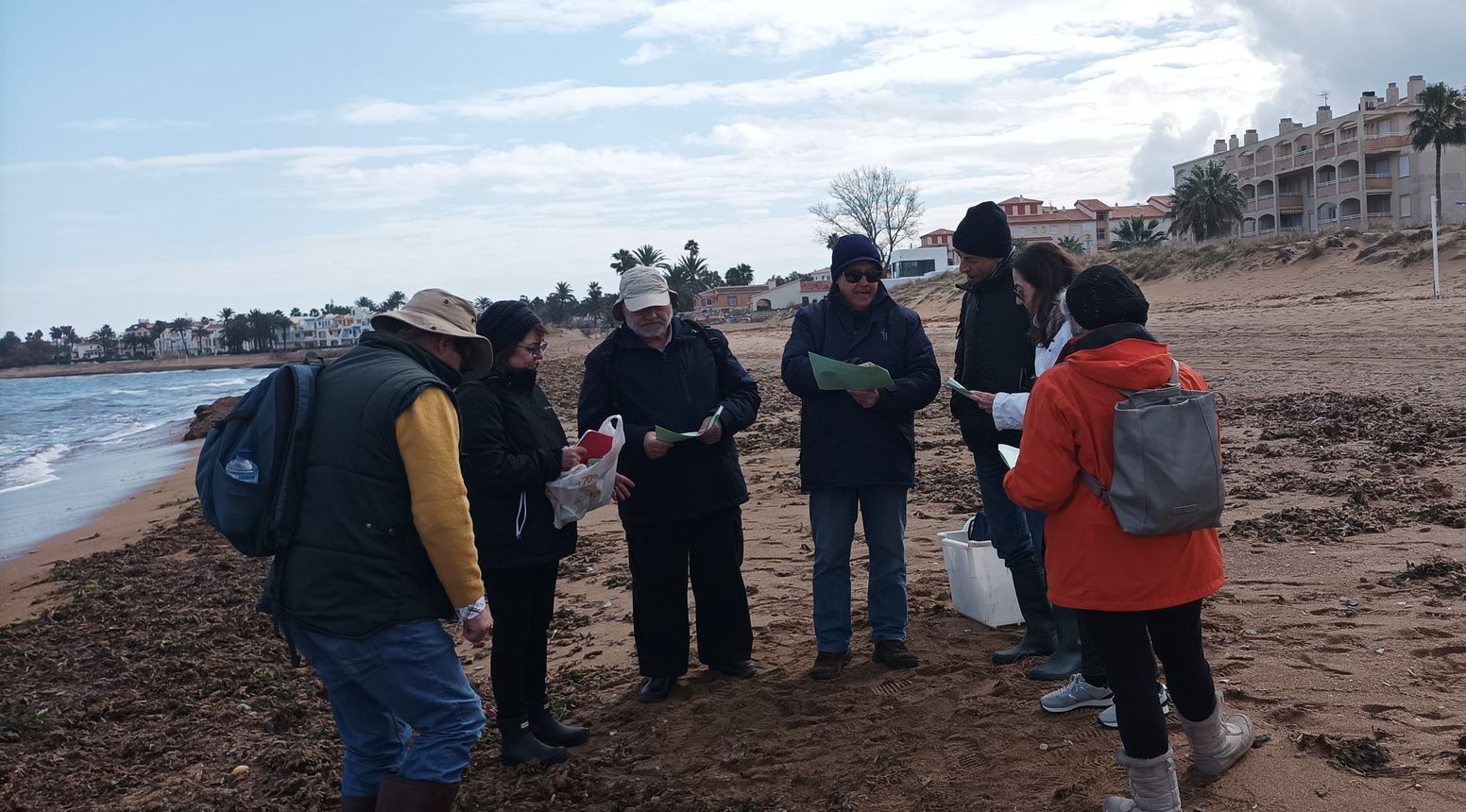Activities
Most of our activities are based on field studies that we carry out in the coastal zone or by boat for sampling and collecting data from specific environments or biological communities. Subsequently, we moved to our headquarters to carry out the study of the samples obtained with the appropriate instrumentation and the corresponding treatment, evaluation and discussion of the data. All members of the working group participate personally and directly both in the collection of data and samples at sea, as well as in their subsequent study through microscope observation, obtaining microphotographs and data processing.

The world of marine plankton
A "world" that goes unnoticed because it is practically invisible to the naked eye but that has transcendental biological importance. Not only as the planet's "green lung" in charge of phytoplankton algae, but also...

Ecology and dynamics of sandy beaches
It may be thought that sandy beaches, as they are perhaps the marine ecosystem most used by the general public, should be the best known in their aspects as a natural system, but this is not the case...

Fauna, flora and biological communities of rocky coasts
Very well represented on our coastline, rocky coasts constitute a natural system with particular characteristics that determine the flora, fauna and biological communities that are located there...

Coastal vegetation
On the seashore we can find environments as diverse as sandy, pebble and blocky beaches (rounded and flattened by the constant erosive action of the waves), or more or less steep rocky coasts, very common on our coastline. In all ...

Coastal geology
The rocky bed of the seabed and its coasts can be considered the “container” that contains the immense volume of water in our seas and oceans. Together with seawater and the atmosphere, they constitute the three abiotic components that determine the...

Submerged meadows: Posidonia oceanica and other seagrasses
In the Mediterranean you can find a total of five species of phanerogams (plants that produce flowers, not like algae): Posidonia oceanica, Cymodocea nodosa, Zostera nana and Zostera marina, as well as some others from estuarine environments or immigrants from...

fish biology
Fish constitute the zoological group that is most frequently popularly associated immediately with the marine ecosystem. Furthermore, everyone is aware of its role as a food resource through fishing or marine aquaculture and the problems...

Specific activities to support teaching
Through agreements with public and private educational institutions or at the initiative of Oceanus and open to interested teaching staff, the Oceanus team organizes courses or series of field and office workshops on topics of interest in the form of...

Marine contamination
Without a doubt, pollution is one of the most important threats to the conservation of seas and oceans. Wastewater discharges of industrial or urban origin without purification or with poor treatment and surplus water from agricultural activities loaded with nutrients...

Conferences and exhibitions
Oceanus organizes conferences by invited specialists of recognized level in different fields, both in research in Marine Sciences and in the fight for the conservation of seas and oceans with the aim of disseminating its activities. Conferences, forums or sessions
Activities for summer leisure
In the extended summer season, approximately from June to September, taking advantage of the favorable water temperature conditions and the state of the sea typical of the season, trips to the sea are organized in specific places to practice "bio-snorkeling", diving ...






